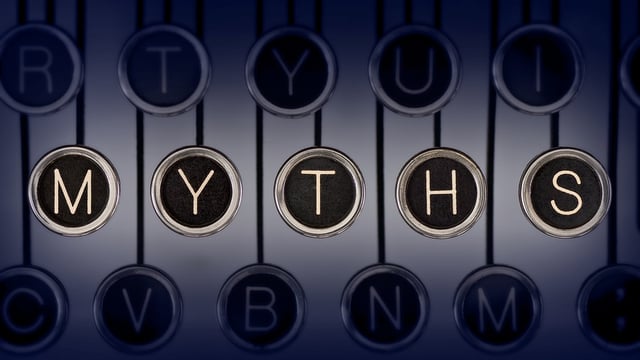DISC assessments can provide abundant insight into the ways employees behave and interact and what you can expect from your team. While these assessments provide useful information and can help you create a productive, harmonious and comfortable culture, they can also lead to misconceptions and even stereotyping for each DISC profile. Are all S-Style individuals happy but laid-back pushovers? Is every D-Style automatically a competitive nightmare who will stop at nothing to win? Of course not – but it is easy to characterize these individuals to the extreme.
 Learning more about what DISC assessments cover and what they don’t and about the process itself can help you understand the subtleties that surround each personality type and avoid making assumptions about yourself or others that could deter progress and communication.
Learning more about what DISC assessments cover and what they don’t and about the process itself can help you understand the subtleties that surround each personality type and avoid making assumptions about yourself or others that could deter progress and communication.
Common Myths and Misconceptions About DISC
DISC is a powerful assessment tool that allows you to get the insight you need into the way your employees behave and their innate preferences and tendencies. Despite the utility of the results, DISC is also one of the most misunderstood assessment tools. In some cases, these misunderstandings and misconceptions can make it difficult to get the best from your team and results.
Clearing up these common myths can help you make the most of the process and gain additional insights into your team.
Myth #1: All DISC assessments are the same – and it doesn’t matter who performs the assessment, the results will always be the same.
Facts: Each DISC assessment is designed to identify a person's DISC style. More importantly, most DISC assessments measure what an individual believes they need, want or hope to be in a given work environment. As a result, their results change over time. “I used to be an S-style, now I am a I-style”, is an example of what a person may say.
Results derived by these DISC assessments not accurate and could make your workplace even worse. When you try to make that supposed C-Style happy by isolating them and giving them task driven work – but they’re actually an I Style who craves interaction, nobody wins. Making sure your DISC assessments measure hard-wired DISC-style is the only way being sure that you have workable, reliable results.
MYTH #2: Your DISC Style can change significantly over time.
 One of the reasons DISC profiles are so useful is that they offer insight into deeply embedded personality traits and preferences. If your DISC assessment is specifically designed to measure the hard-wired DISC style, the results will remain very stable. While significant life events can have a temporary impact on an individual’s style (big things like divorce, a death in the family) eventually the DISC profile returns to the same DISC style.
One of the reasons DISC profiles are so useful is that they offer insight into deeply embedded personality traits and preferences. If your DISC assessment is specifically designed to measure the hard-wired DISC style, the results will remain very stable. While significant life events can have a temporary impact on an individual’s style (big things like divorce, a death in the family) eventually the DISC profile returns to the same DISC style.
MYTH #3: DISC is a Personality Test
DISC doesn’t measure personality – it measures behavior and outcomes. Other psychological tools are designed to dig deeper and provide insight into the complexities that make up a person’s personality.
These common misconceptions are easily cleared up and clarified – but misconceptions about each distinctive style can be more difficult to clear up and see past.
D Style Myths
The D individual does have a need to be in control and can be competitive – but not every D-Style individual is a natural born leader. These competitive and decisive team members may be the most vocal but are not automatically the winners in any competition. That rapid-fire decision making could lead to mis-steps, and while some D Style individuals can be seen as arrogant or overly competitive not all are.
Automatically assuming that the D-Style members of your team should be in charge can be a mis-step. While they may be rock stars in a given area, not all D-Style workers thrive or perform well in a leadership role. Their very willingness to make snap decisions and impatience with others who don’t move as swiftly can be a barrier to collaboration and coordination.
I Style Myths
 Artsy and spontaneous, it’s easy to overlook these positive and cheerful members of the team or give their weight less input than the more task-oriented styles in the office. Their natural sunny nature and avoidance of controversy may make them seem like they are disorganized or that they don’t have as much to offer. In many cases, the “out of the box” thinking employed by these individuals is incredibly valuable to the workplace.
Artsy and spontaneous, it’s easy to overlook these positive and cheerful members of the team or give their weight less input than the more task-oriented styles in the office. Their natural sunny nature and avoidance of controversy may make them seem like they are disorganized or that they don’t have as much to offer. In many cases, the “out of the box” thinking employed by these individuals is incredibly valuable to the workplace.
Overlooking the contributions these team members are capable of or not taking a look past the sunny exterior can prevent you from gaining access to some powerful insights. That sunny exterior could be hiding some key details about your team, your processes and your workflow. Taking the time to listen to your I-style team members can pay off over time.
S Style Myths
Their laid-back, modest style makes them seem like they will accept and adapt to anything; they can also be surprisingly competitive when they need to be. The relaxed, sometimes timid appearance of these employees means that their willingness to pitch in and compete could be overlooked.
Push this personality type too hard, thinking they are a pushover and you may get a surprisingly unpleasant response. While the S-Style personality is generally easy to get along with, they will retreat, disengage or fight back if cornered. Overlooking this tendency can create strife in the workplace and lead to problems over time.
C Style Myths
 Highly analytical and dedicated to tasks, this personality type thrives in isolation, but that doesn’t mean that they are emotionless or that they don’t have feelings. While you will rarely see emotion, assuming that this conscientious and reliable task master won’t care about being slighted is a mistake.
Highly analytical and dedicated to tasks, this personality type thrives in isolation, but that doesn’t mean that they are emotionless or that they don’t have feelings. While you will rarely see emotion, assuming that this conscientious and reliable task master won’t care about being slighted is a mistake.
You’ll rarely see it, but C Style individuals can be sensitive to the behavior of others, even if that sensitivity is masked by a hard to read exterior. Treat them like they are logical, emotionless machines and you’ll lose the trust of this dedicated and task driven employee.
Learning the facts about how DISC works and some of the common misconceptions about the different personality types can help solidify your understanding of the assessment results and ensure you get the best possible outcomes from the process. Knowing some of the most common myths surrounding the process allows you to be wary and prevents them from interfering with your ability to create a very successful workplace.

